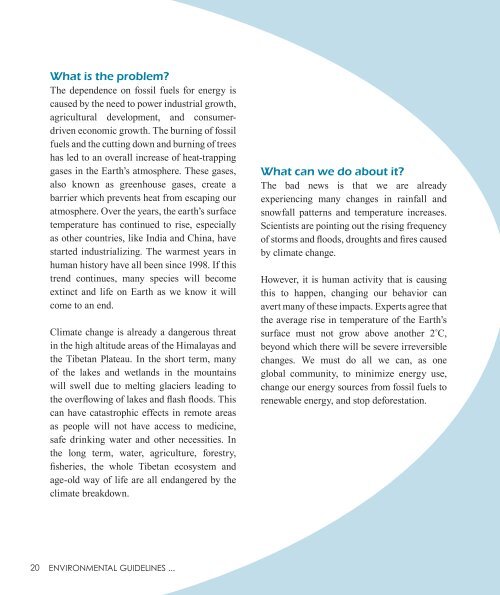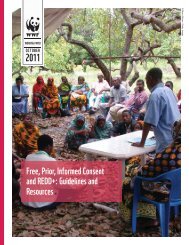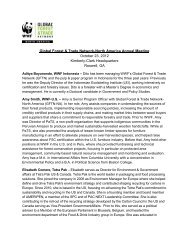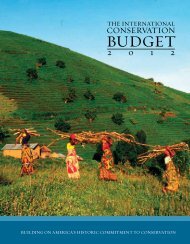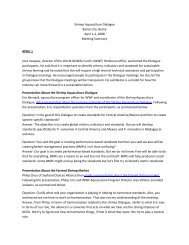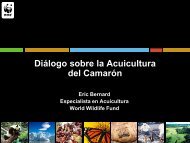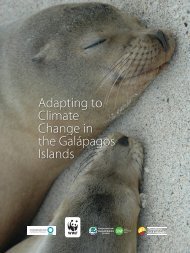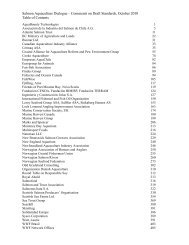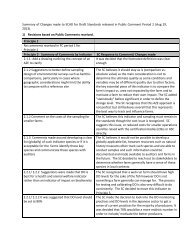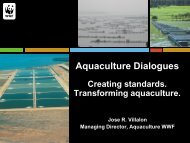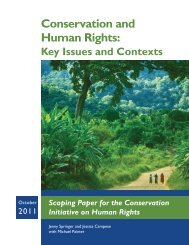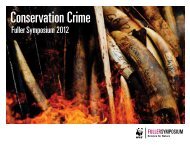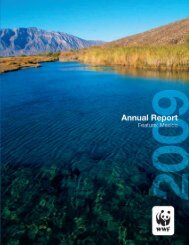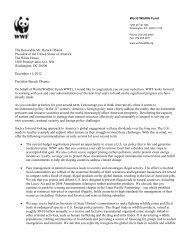ENVIRONMENTAL GUIDELINES - World Wildlife Fund
ENVIRONMENTAL GUIDELINES - World Wildlife Fund
ENVIRONMENTAL GUIDELINES - World Wildlife Fund
You also want an ePaper? Increase the reach of your titles
YUMPU automatically turns print PDFs into web optimized ePapers that Google loves.
What is the problem?<br />
The dependence on fossil fuels for energy is<br />
caused by the need to power industrial growth,<br />
agricultural development, and consumerdriven<br />
economic growth. The burning of fossil<br />
fuels and the cutting down and burning of trees<br />
has led to an overall increase of heat-trapping<br />
gases in the Earth’s atmosphere. These gases,<br />
also known as greenhouse gases, create a<br />
barrier which prevents heat from escaping our<br />
atmosphere. Over the years, the earth’s surface<br />
temperature has continued to rise, especially<br />
as other countries, like India and China, have<br />
started industrializing. The warmest years in<br />
human history have all been since 1998. If this<br />
trend continues, many species will become<br />
extinct and life on Earth as we know it will<br />
come to an end.<br />
Climate change is already a dangerous threat<br />
in the high altitude areas of the Himalayas and<br />
the Tibetan Plateau. In the short term, many<br />
of the lakes and wetlands in the mountains<br />
will swell due to melting glaciers leading to<br />
the overflowing of lakes and flash floods. This<br />
can have catastrophic effects in remote areas<br />
as people will not have access to medicine,<br />
safe drinking water and other necessities. In<br />
the long term, water, agriculture, forestry,<br />
fisheries, the whole Tibetan ecosystem and<br />
age-old way of life are all endangered by the<br />
climate breakdown.<br />
What can we do about it?<br />
The bad news is that we are already<br />
experiencing many changes in rainfall and<br />
snowfall patterns and temperature increases.<br />
Scientists are pointing out the rising frequency<br />
of storms and floods, droughts and fires caused<br />
by climate change.<br />
However, it is human activity that is causing<br />
this to happen, changing our behavior can<br />
avert many of these impacts. Experts agree that<br />
the average rise in temperature of the Earth’s<br />
surface must not grow above another 2˚C,<br />
beyond which there will be severe irreversible<br />
changes. We must do all we can, as one<br />
global community, to minimize energy use,<br />
change our energy sources from fossil fuels to<br />
renewable energy, and stop deforestation.<br />
20 <strong>ENVIRONMENTAL</strong> <strong>GUIDELINES</strong> ...


